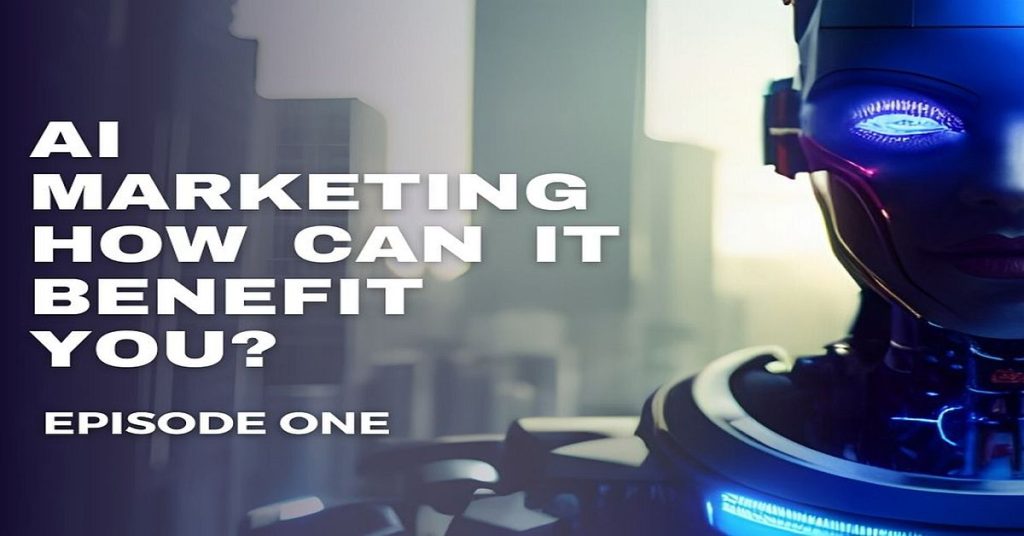Increasing customer expectations and fierce competition have forced businesses to turn to innovative solutions to stay competitive. The combination of artificial intelligence and digital marketing is among the game-changers. Businesses can revolutionize their marketing efforts, drive growth, and deliver personalized experiences to customers with artificial intelligence (AI). The purpose of this article is to take a journey through AI Marketing, take apart its concept, clear up misconceptions, and explore its endless possibilities. Learn how AI can supercharge your marketing campaigns and elevate your brand whether you’re a small business owner or marketing enthusiast.
What is AI Marketing
You may hear people talking about artificial intelligence these days. And while there are a lot of naysayers and misconceptions, AI is actually a very helpful tool when used right, especially in digital marketing.
For instance, AI can be used to analyze vast amounts of data about customer behavior to determine the most effective marketing strategies for a business.
Artificial intelligence marketing, or AI marketing, uses advanced algorithms and technologies to enhance marketing strategies. It helps businesses stay ahead of the competition and win over customers by transforming marketing from guesswork to precise science. It’s time to move beyond manual analysis and intuition-based methods. Making data-driven decisions, identifying theght audience, and delivering personalized experiences through your target market’s collected data is possible with AI marketing.
6 Essential Benefits of AI Marketing in the Industry
Businesses are constantly seeking innovative tools to gain a competitive advantage in today’s fast-paced and data-driven marketing environment. The use of artificial intelligence has numerous benefits for the marketing industry, including:
A data-driven approach
To create effective marketing campaigns, AI algorithms analyze customer behavior, market trends, and other relevant data points to uncover patterns, correlations, and actionable insights. As a result of these data-driven insights, you will be able to make informed decisions and gain a deeper understanding of your customers, market dynamics, and competitors.

Optimum customer targeting
Let go of generic marketing and welcome personalized campaigns tailored to your customers’ specific needs. As a result of the data it collects, AI can create accurate customer profiles, enabling you to deliver highly personalized and relevant messages, offers, and experiences to individuals or specific groups of customers. Through it, you can connect with the right people at the right time, which leads to increased engagement, conversions, and overall marketing effectiveness.
Enhanced personalization and customer feel
Today’s consumers crave personalized experiences that resonate with their unique needs and preferences. They don’t want some nameless company selling them products; they want something they can connect to.
By leveraging advanced algorithms and machine learning, AI can use your customer’s data to create personalized recommendations, tailored content, and targeted offers. Understanding your customers deeper makes meaningful connections that drive engagement and loyalty.
Simplified and Automated Marketing Processes
Skip the repetitive activities with AI-powered automation. From e-mail campaigns to social media scheduling, AI frees your time, increases effectiveness, and ensures consistent channel messaging. Now you have more time for strategic planning and creative endeavors.
Improved marketing campaigns
AI’s capabilities for analytical analysis help you optimize your digital marketing campaigns for maximum impact. Leveraging historical data enables you to refine your strategies, allocate resources more effectively, and make informed decisions to achieve better campaign performance.
Developed Customer Support
AI-driven chatbots and virtual assistants have transformed customer support in the digital age. They provide instant and personalized assistance, resolving queries promptly and efficiently. With 24/7 availability, chatbots improve customer service, reduce response times, and simultaneously handle a large volume of simple inquiries, freeing up human resources for more complex tasks.
Essential AI Tech Marketing Tools
Machine Learning
Machine learning (ML) helps computers learn and improve from data. Its algorithms are used to analyze large amounts of your customer’s data and discover patterns and trends to optimize your digital marketing campaigns. Machine learning has several uses in marketing, including:
Predictive Analytics
It forecasts future outcomes based on historical and real-time data. With this, marketers can anticipate customer needs, predict trends, and make data-driven decisions. This enables proactive campaign optimization, resource allocation, and personalized targeting.
In the future, this AI marketing tool will become even more accurate and sophisticated as it collects data from more customers.
Customer Behavior Analysis
Customer behavior analysis using AI will continue to evolve and provide deeper insights into consumer preferences, patterns, and engagement. Advanced algorithms let you understand customer behavior, identifying their motivations, purchase triggers, and engagement preferences.
With this, you can cater your marketing plan to fit their needs and preferences according to the data collected.
Recommendation Systems
These systems leverage machine learning algorithms to analyze your customers’ data and provide personalized recommendations. It’s beneficial to cross-sell your other products.
In the future, recommendation systems will offer highly tailored suggestions based on past purchases and consider contextual information, customer preferences, and real-time behavior.
Natural Language Processing
Natural Language Processing (NLP) lets computers understand and interpret human language. It helps you analyze and extract insights from text data, such as customer reviews, social media comments, and survey responses. NLP algorithms can identify sentiments, extract key topics, and detect language nuances. This allows businesses to gain valuable customer insights, personalize communication, and improve customer experiences.
Some NLP’s components include:
Sentiment analysis
This allows you to understand and analyze customer emotions, opinions, and attitudes toward products, brands, or marketing campaigns. You’ll gain valuable insights into customer perception, identify emerging trends, and tailor marketing tactics to better resonate with their target audience.
Chatbots and virtual assistants
Chatbots and virtual assistants are AI-powered conversational interfaces that provide instant customer support and engagement. Chatbots and virtual assistants are crucial in automating customer support, lead generation, and sales, freeing human resources and enhancing overall customer satisfaction.
Content generation and curation
It analyzes vast amounts of data, including customer preferences, trends, and user-generated content, to produce relevant and engaging content. You can automate your content creation processes, tailor content to specific customer segments, and optimize channel distribution.
Computer Vision
Computer vision allows machines to analyze and understand visual content, such as images and videos. It uses algorithms to analyze and extract information from visual data.
In AI marketing, computer vision can recognize objects, detect patterns, and understand customer behaviors based on visual cues. This helps businesses optimize product placement and create targeted visual advertisements.
Computer Vision has several components in AI marketing, namely:
Visual Search
Visual search allows users to search for products or information using images instead of text-based queries. Consumers can simply take a photo or upload an image to find similar products or gather relevant information.
This technology enhances the discovery and shopping experience, letting your consumers see what they want from your company quickly and easily.
Image Recognition
This analyzes and identifies objects within images or videos. With this, you can identify brand logos, analyze user-generated content, monitor brand presence on social media, and better understand how customers engage with visual elements. This information helps optimize marketing plans and tailor visual content to resonate with your target audiences.
Augmented Reality and Virtual Reality
Augmented reality (AR) lets you see digital elements in the real world, while virtual reality (VR) provides immersive simulated environments through digital means. These technologies allow you to engage customers uniquely and captivatingly.
You can offer virtual try-on experiences, interactive product demonstrations, and location-based AR experiences. Meanwhile, VR can be used for virtual tours, immersive storytelling, and enhanced brand experiences.
Big Data and Analytics
Big data technologies collect, store, and process massive amounts of data, providing marketers with actionable insights. It uncovers patterns, trends, and correlations that can inform marketing techniques using several components such as:
Data collection and integration: Centralize and consolidate data for a holistic view of your customers. This comprehensive data collection and integration lays the foundation for effective AI-driven marketing plans and personalized customer experiences.
Data mining and pattern recognition: Identify customer preferences, behavior trends, and purchasing patterns by mining data. These insights let you create targeted marketing campaigns, optimize pricing strategies, and develop personalized product recommendations.
Real-time Analytics: Access real-time data insights and make data-driven decisions on the fly. Real-time analytics lets you actively monitor campaign performance, track customer interactions, and adjust marketing strategies. By leveraging real-time analytics, you can respond promptly to customer needs, improving their experience with your business.
…to be continued

